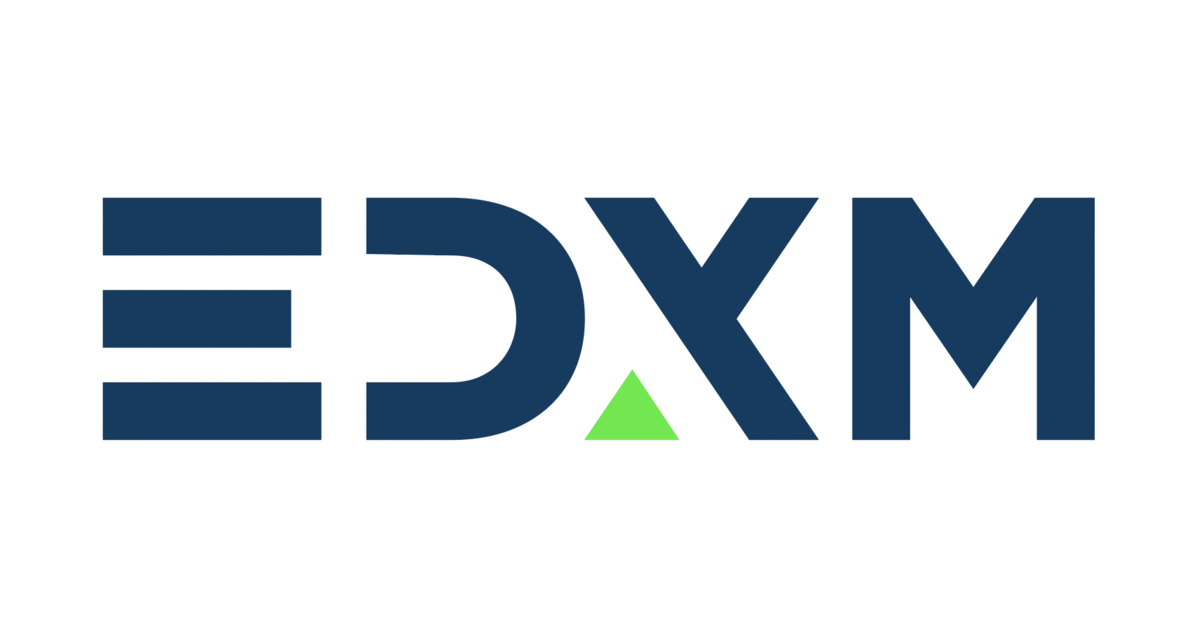Lawyer's point of view: Bitfinex litigation is getting worse, but USDT's long-term risk is still controllable

The battle between Bitifinex and the Office of the Attorney General of New York has become more intense.
On August 19, 2019, the New York State Supreme Court (hereinafter referred to as "the New York High Court") was responsible for the Attorney General of the State of New York ("NYAG") and the cryptocurrency exchange Bitfinex. (IFINEX INC., hereinafter referred to as "Bitfinex") has ruled on the jurisdictional issues involved in cases involving suspected mixed funds and misleading investors about their US dollar reserve stable currency.
In this highly regarded case, Bitfinex and NYAG have played multiple rounds of games in the past few months. Previously, Bitfinex filed a motion requesting the withdrawal of NYAG's investigation because its relationship with New York was not sufficient to trigger NYAG's Personal Jurisdiction , and because Tether's attributes were not Securities . Or "Commodities", so NYAG's investigation of Bitfinex's business activities exceeds the law enforcement authority set by the Martin Act , and thus there is no Subject matter Jurisdiction in this case.
- Bloomberg: Bitcoin will be in the long-term between $8,000 and $20,000
- National Currency Magic Curse: A Digital Currency Discovery Tour in Latin America
- BTC tests the bottom track of the up channel again. Is the long cool?
However, the New York High Court Presiding Judge Joel M. Cohen ruled the dismissal of Bitfinex's motion, confirmed the jurisdiction of the case, and the previous suspension of the investigation was revoked, meaning that Bitfinex should comply with NYAG before October 14. Submit all documents related to this survey to it.
Article 354 of the Martin Act states:
"Whenever the attorney-general has determined to commence an action under this article, he may present to any justice of the supreme court, before beginning such action, an application in writing for an order directing the person or persons mentioned in the application to appear Before the justice of the supreme court or referee designated in such order and answer such questions as may be put to them or to any of them, or to produce such papers, documents and books concerning the alleged fraudulent practices to which the action which he has Determined to bring relates, and it shall be the duty of the justice of the supreme court to whom such application for the order is made to grant such application…"
The above provisions gave NYAG a written application to the Supreme Court before filing a lawsuit under the Martin Act, requesting that the person accused of fraud be summoned and asked to provide the relevant documents. In accordance with this clause, NYAG also proposed the investigation of Bitfinex requirements.
Therefore, the focus of the New York High Court on the judgment of this case is undoubtedly whether the Martin Act is applicable in this case.
01 Bifinex v. New York Attorney General's case
1. Based on the business relationship between Bitfinex and New York, does NYAG have “personal jurisdiction” for Bitfinex, thereby enabling NYAG to have a law enforcement basis for Bitfinex to retrieve relevant materials in accordance with Article 354 of the Martin Act?
In this regard, Bitfinex proposes that it has ceased to serve New York residents since January 2017 – Bitfinex and Tether have banned any residence, business located in New York State or in New York State in the revised Terms of Service. Trading on Bitfinex; in August of the same year, it stopped further serving all US residents, and all entities and corporate customers in the United States will be banned from accessing Bitfinex services after one year.
In addition, Bitfinex claims that they have conducted user screenings to prevent US customers from opening accounts on their websites and to close accounts that have been opened but later discovered to be US customers. At the same time, Bitfinex also claims that neither Tether nor Tether has advertised or marketed to individuals or entities in New York or the United States. All users of Bitfinex and Tether are required to recognize and declare that they are not New York residents.
As such, Bitfinex believes that it should not be bound by NYAG, and NYAG should not administer it under the Martin Act.
NYAG responded that the evidence showed that as early as January 2015 – far ahead of the Bitfinex Terms of Service change, Bitfinex and Tether maintained a "substantial link" with New York residents until the above terms of service were changed. There is evidence that the two companies:
- Allowing some customers in New York to trade on the Bitfinex trading platform after January 30, 2017;
- Allow traders in New York to use the Bitfinex service;
- Agree to provide loans to a New York-based virtual currency exchange by 2019;
- Open an account and use its services at a bank located in New York;
- At least 2018, through a resident who works in New York State, has a physical presence in New York State.
2. Can Tether be considered a “securities or commodities”, thereby making NYAG “targeted jurisdiction”?
In this regard, Bitfinex claims: Tether is a form of "stable currency" whose value is linked to traditional currencies such as the US dollar and the euro. Under certain restrictions, Tether can be converted into traditional currency one-to-one. However, Tether does not constitute an owner's interest in Tether. Users usually do not purchase stable currency for investment purposes. The main function of Tether is to promote other virtual currency transactions. Therefore, Tether has neither securities nor commodity attributes.
In this regard, NYAG argues that it is too early to characterize Tether at this stage and points out that “there is reason to believe that certain materials will eventually prove to be securities or commodities within the scope of the Martin Act.” In short, NYAG I hope to collect more materials before making a final qualitative. NYAG believes that Tether's application on the exchange and Bitfinex's recent IEO project are clearly characterized by securities issued by the Martin Act.
In this ruling, the New York High Court held that although it did not intend to characterize Tether at this stage, Bitfinex failed to prove that NYAG's investigation was obviously unreasonable or undoubtedly beyond the scope of the Martin Act. Any argument can be invoked to clarify that Tether is not subject to the Martin Act, and therefore dismissed the objection to the “target jurisdiction” in the Bitfinex motion.
According to this ruling, it can be seen that:
- If a foreign company does not conduct US business, it should theoretically enjoy civil immunity in New York. However, this does not mean that it is exempt from NYAG's investigation (to determine whether it violates relevant laws). (For many blockchain projects, this doesn't sound like good news.)
- As long as NYAG has reasonable grounds to believe that the company has violated New York regulations, the due process provisions of the US Federal Constitution will not prevent it from exercising the appropriate summons and initiate investigations aimed at ascertaining the facts.
02 Will Bitfinex be fined?
1. A foreign company, if it has clearly no business dealings with the user's agreement, and the user has clearly indicated that he is bound by the contract, is the contract effective? Then, is it reasonable for the court to judge whether it can be subject to the corresponding law based on "substantial contact"?
I believe that if the parties have a clear and corresponding constraint in the contract, then they should have corresponding effectiveness. In the case of evidence collection in this case, NYAG also used the “fishing law enforcement”, which means that it agreed that it is not a New York resident and successfully traded on the platform. Whether the act should be a situation of its own fundamental breach of contract, and the “substantial link” caused by such acts should be entirely borne by Bitfinex may not be very reasonable. And as an exchange, the “identification” and “KYC” responsibilities that it has to bear will increase accordingly. However, on the other hand, if the exchange deliberately leaves room for accepting New York users, it may make the law enforcement a bigger problem in the future.
The judgment of the High Court on the "substantial link" actually shows the corresponding attitude on this issue. The supervision will use the substantive transaction as the basis for the judgment. The United States, as a case law country, may influence the judgment direction of subsequent related cases.
2. If you continue the NYAG investigation and evidence collection, what final decision may you make on Bitfinex?
At present, the Supreme Court of New York only decides whether NYAG can investigate and collect evidence for Bitfenex. However, it is still too early to judge whether the result of the investigation is to go to criminal proceedings or to issue a ticket.
However, let's sort out some of the cases that occurred before:
(1) In January 2019, Rosen Yosifov, owner of the RGCoins on the digital currency exchange, a non-US digital currency exchange official, was "globally enforced" by the US government due to intentional or unintentional violations of US anti-money laundering and sanctions laws. Extradited to the United States.
(2) In August 2018, the US Treasury's Financial Crimes Enforcement Network imposed a record high of $110 million on BTC-e on Wednesday night and fined $12 million against Russian Alexander Vinnik. Represented Vinnik as the beneficial owner of a Seychelles-based company that manages BTC-e. Prior to the issuance of these fines, according to 21 allegations made by the US Department of Justice in a District Court in Northern California, Vinnik was later arrested in Greece at the request of the US government.
(3) The CFTC, the highest regulator of financial derivatives in the United States, bans Cabbage Tech and its principal, Patrick K. McDonnell, from trading futures on digital assets. The New York Eastern District Court recognized the CFTC ban and sentenced the defendant Cabbage Terch or Coin Drop Markets and its principal, McDonnnell, to permanently ban digital asset futures trading for defrauding customers in violation of the Commodity Exchange Act, with a fine of approximately $870,1287. – Between 1.16 million and 1716 US dollars, the compensation for victims was 290,429 US dollars.
As can be seen from the above cases, the relevant US regulatory agencies continue to supervise major trading platforms and impose fines and even criminal penalties. Even for exchanges outside the United States, the regulators in the United States have consistently adopted "actual links" as the basis for corresponding judgments and penalties.
3. How can the New York High Court enforce the law after the final decision is formed? And what impact may it have on USDT in the future?
Since Bitfinex is an offshore entity, all management is not a US resident. Then even if the New York High Court issued a judgment, there will be corresponding obstacles at the law enforcement level. The immediate impact is that Bitfenex's business in New York and even the United States will be affected accordingly. However, if Bitfinex abandons the US financial system and does not have a US bank account, it will have a major obstacle to the enforcement of US fines.
At this stage, Tether's US bank risk has been largely digested. If US regulators do not make substantive criminal penalties for Bitfinex, in the long run, USDT is likely not to be affected too much. In fact, although the litigation war has intensified, the price of USDT is still firm, and its market performance also illustrates this.
Personally, for whatever reason (political factors, the personal inclination of the presiding judge, etc.), this ruling more or less reveals that the New York High Court has a certain degree of partiality to NYAG. Compared to NYAG's vague general claims (especially for the “target jurisdiction” section), Bitfinex's defenses in this case are more explicit and persuasive. However, the presiding judge finally supported the NYAG claim and gave a green light to its investigation.
There are many cryptocurrency exchanges on the market, and Bitfinex is one of the few that plays the role of "bad boy." It is like a warrior, insisting on prosecuting NYAG instead of directly complying with regulatory advice, and is fully welcoming the next round of challenges from NYAG. The latest news shows that after experiencing the above-mentioned court ruling, Bitfinex decided to appeal the judgment of the New York High Court yesterday, insisting that NYAG does not have the corresponding jurisdiction.
We will continue to pay attention to the direction of the situation. But no matter how the case is advanced, it will be a hard confrontation between the exchange and the US regulation. It will also play a vital role in promoting the regulation of the US and global digital currency and the progress of the law.
Invoking the judgment of this case:
Source of this article: Carbon chain value
We will continue to update Blocking; if you have any questions or suggestions, please contact us!
Was this article helpful?
93 out of 132 found this helpful
Related articles
- "Don't speculate, let's go to the shoes."
- Observations | Several famous schools have become blockchain harvesting amaranth tools?
- How to truly decentralize DeFi?
- I am not Nakamoto.
- DeFi, why did you go after standing up?
- Big event | Tether is about to launch RMB stable currency
- InfStones will attend 2019 than the original global developer conference, Staking trend share ahead of time | Countdown three days






